Whom does education serve in Bangladesh?

Politicians' goals for basic education in South Asia are different from parents' goals. Politicians want school construction, teacher recruitment, free textbooks, and a centralised system of education. Parents want a quality education that gives their children a better future.
It's no surprise, then, to see a consistent increase among parents in South Asia sending their children to non-government schools ("low cost" private schools, NGO schools, madrasas) with the hope that their children will learn, at a minimum, the ability to read the local language at a basic level and do basic arithmetic.
But even in these modest desires, we believe both the children and their parents are betrayed by South Asian school systems—with the exception of Sri Lanka. For example, the "learning poverty" rates in the three most populous countries in South Asia range from 56 percent in India and 58 percent in Bangladesh, to 78 percent in Pakistan. The outlier is Sri Lanka where the rate is only 14 percent, better than many high-income countries.
Why is this the case given that, over the last three decades, there has been near universal access to primary education?
To understand this, you have to appreciate that school systems are composed of institutions dominated by the education bureaucracy, by politicians, and by teachers' unions. The dominant goal of those groups is not children's learning, but the protection of their own interests.
Gaming the system
Politicians see education as a tool to foster a common allegiance and national loyalty among citizens. That's why bureaucrats and politicians have gamed universal primary education in various ways. In 2009, India enacted an ambitious Right to Education Act for all children aged 6-14 years. At the same time, Bangladesh introduced the Primary Education Completion Examination (PECE). Both initiatives resulted in higher enrolment and a higher primary cycle graduation, but not better learning.
The most credible assessment of primary students' learning in India is ASER, a large-scale assessment conducted at students' homes with a statistically significant sample size. It's organised by Pratham, a large NGO. The most advanced questions posed are on the ability of sampled children to read a short story at Grade 2 level and divide a three-digit number by a one-digit number. The national averages of the latest ASER survey, in 2022, are dismal. At Grade 5, in government schools 39 percent of children can read the story and 22 percent can do the division. Though far from ideal, non-government schools perform much better: at Grade 5, about 57 percent can read the story and 37 percent can do the division.
But, this begs the question: why are children successfully graduating from school but can neither comprehend a Grade-2-level passage or solve a simple division problem? The "game" in Bangladesh and India has been to lower the bar to pass the Grade 5 exam, and to frequently allow question paper leakage before the exam day.
As an example, for more than a decade, Bangladesh conducted the National Student Assessment (NSA), a very sophisticated in-school assessment on a representative sample of primary school students in grades 3 and 5. But, in 2022, Bangladesh compromised assessment integrity by offering special tutoring to Grade 5 students using the testing tools to demonstrate better performance in their latest NSA. Ironically, the national entity that oversees primary education service delivery played this "game" instead of protecting the integrity of the assessment. The international organisation that oversaw the 2022 NSA collaborated with the primary education department in Bangladesh and failed to protect minimum research integrity.
In Bangladesh, despite this kind of scam, international organisations have played an important role in expanding primary education opportunities for millions of children. Like many other developing countries, Bangladesh has received significant development assistance in education since the 1980s, following the elevation of education as an investment emanating from the Jomtien conference in Thailand and the subsequent Education for All commitment to universal primary education.
After 1990, Bangladesh started receiving more development assistance in education. Politicians and bureaucrats used the money to create more positions for more teachers, build more classrooms, distribute free textbooks to all primary school students, and expand teacher training facilities. Everything improved except actual learning. After the Jomtien conference, the bureaucracy and politicians met their desires; the parents did not.
Education as investment—for whom?
Around the world, national governments and multilateral and bilateral organisations have initiated development programmes aimed at alleviating poverty. In this development effort, education has always been considered as the single most important means for increasing the household income of the poor. The importance of basic literacy and numeracy is so obvious, and the evidence so overwhelming, that bilateral and multilateral agencies, philanthropies—even private businesses—are all investing in education.
However, the development assistance to education in South Asia has never kept pace with the basic education needs. International organisations put emphasis on quality and equity in basic education and "reluctantly" shared strategies, without adequate evidence, to convince political and bureaucratic leadership to address chronic quality deficits in basic education in South Asia.
In Bangladesh, a few development partners tried to include interventions to improve foundational literacy and numeracy in the fourth Primary Education Development Programme (PEDP), but their efforts were not concerted and sometimes subverted. The multilateral banks were more interested in disbursing funds than adding any accountability measures to achieve quality educational goals in primary education.
The second PEDP (2004-2010) received 37 percent as development assistance from 11 bilateral and multilateral donors for a total primary education budget of $1.8 billion. But through PEDP-3 and PEDP-4, this reduced as much as eight percent, despite the absolute value of donor contributions remaining constant, as the government substantially increased its primary education budget.
The government funded this significant increase by negotiating more loans from multilateral banks, such as the World Bank and Asian Development Bank—loans which would have to be repaid. In effect, additional domestic government revenue mainly served political and bureaucratic goals—not learning goals for children and their parents, which continued to decline. Moreover, the declining donor share of the primary education budgets in Bangladesh reduced their influence in discussions about learning outcomes.
Where now for basic education in Bangladesh?
Where does that leave basic education in Bangladesh under the new political dispensation?
Although education will not feature highly among Prof Muhammad Yunus's short-term priorities, there are opportunities to change and address the systemic failings highlighted above, not least through more consultative and inclusive processes.
Undertaking an assessment of students' foundational skills using the ASER process developed in India is one such opportunity. The results will reveal the scale of the problem and determine how to take action quickly to reduce learning poverty levels.
Investing in teachers is a second essential strategy. Teachers' professionalism and performance are drivers of change in education. A reimagined teaching profession should attract and retain the best talents in the profession, but that also needs changed performance standards, status, incentives, remuneration, and career paths. This rethinking about teachers will be a longer-term task, but it should begin in earnest now.
Decentralisation of education management under a single education ministry can open the process of reform to gain stronger traction and wider support. This will be important if a real impact is to be made on foundational literacy and numeracy.
There is a real opportunity now in Bangladesh to stop the betrayal of politicians and bureaucrats. By meeting the demands of parents through focusing on learning outcomes and reforming the education system to accommodate many voices, change can be made possible.
This article was first published by Re Education on October 8, 2024. The authors were part of a a research looking into basic education systems in South Asia.
Shahidul Islam is an education policy and planning expert.
Dr John Richards is emeritus professor at the School of Public Policy in Simon Fraser University, Canada.
Views expressed in this article are the authors' own.
Follow The Daily Star Opinion on Facebook for the latest opinions, commentaries and analyses by experts and professionals. To contribute your article or letter to The Daily Star Opinion, see our guidelines for submission.

 For all latest news, follow The Daily Star's Google News channel.
For all latest news, follow The Daily Star's Google News channel. 
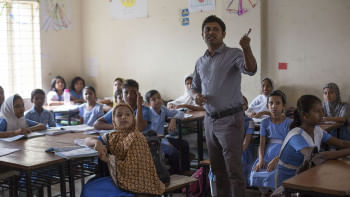
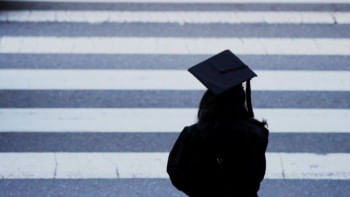
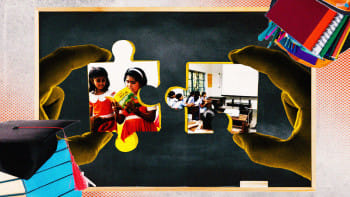
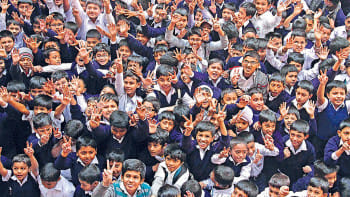
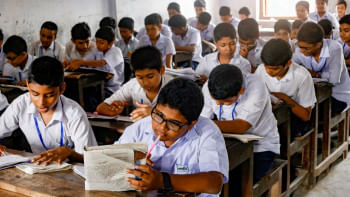


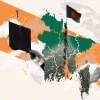

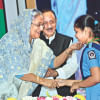




Comments